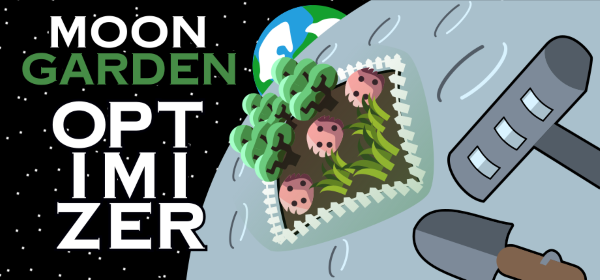Moon Garden Optimizer is now listed on Steam. You can still play the game in browser for free on Itch.io, but the Steam version will be paid and have expanded content.
Moon Garden Optimizer is a puzzle strategy game about growing a garden while conserving water. It’s the only strategy game I’ve seen that lets you undo as much as you like. Wishlist on Steam!
Ahem.
So I’d like to discuss the decision to put the game on Steam, and also sell it for money. Selling out, as it were.

